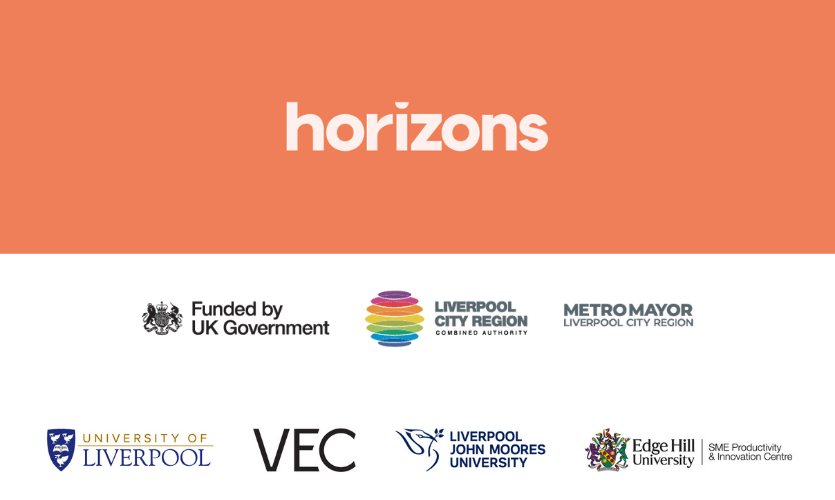Addressing UK engineering's innovation lag
Anthony Walker, Strategic Manager for the Horizons project at Liverpool John Moore’s University spoke with The Engineer about the ‘innovation lag’ when it comes to the adoption of game-changing technologies such as AI across the UK engineering sector and argues for urgent action.
“Engineering is an industry that has long been at the forefront of innovation and technological advancement. In fact, innovation is at the essence of the engineering sector, and has led to groundbreaking advancements that have shaped the world we live in today. Without it, the industry would stagnate, unable to adapt to new challenges or the evolving needs of society.
“With the rapid advancement of digital technologies, 70% of UK manufacturers, engineers and product developers are showing signs of optimism about the potential of AI, according to new research conducted by digital manufacturer Protolabs.
“The adoption of AI offers unprecedented opportunities for the engineering industry. The possibilities of generative design, simulation, quality control and supply-chain optimisation are just a handful of a multitude of areas where AI can improve efficiency, flexibility and productivity, helping to streamline processes and adapt to industry demands.
“Yet less than 40% are planning to implement it within their businesses – indicating a slower approach than their European counterparts, where 71% of French businesses, 50% of Germans and 44% of Italians are looking to adopt the technology.
“With a new government in power promising to rebuild and transform the economy, addressing UK engineering’s lag on innovation will be crucial to the future of an industry.”
An era of change
“Labour’s manifesto featured relatively little clear guidance as to what the engineering and manufacturing industries can expect from the new government, and no indications of any radical change of approach.
“It did, however, recognise advanced manufacturing as one of the crucial industries that “makes Britain great”, and pledged funding for the automotive and steel industries.
“What is clear is Labour’s emphasis on economic stability, and as such, providing a stable business environment for engineers and manufacturers to thrive within.
“The new government has also recognised that with the rapid pace of digitalisation, an AI strategy is essential, and has outlined plans to prioritise laws around tech regulation. But it must also acknowledge the role AI has to play in improving efficiencies and driving growth in key sectors like engineering and manufacturing, which will be critical if Labour is to deliver on its promises to kickstart the economy.
“There are certainly signs of an openness to embracing this potential. The newly appointed Secretary of State for Science, Innovation and Technology, Peter Kyle, has endorsed the use of AI to improve public services, including the NHS and education system, and proposed the creation of a new body, Skills England, to lead a strategic review of the skills most lacking in the UK economy, working with businesses and combined authorities.
“With recent research by Made Smarter signalling that 8 out of 10 manufacturers recognised that gaps in skills and knowledge were impacting on their ability to adopt digital technologies, addressing these gaps will be the first step in moving towards an industry that is able to fully embrace AI and digitalisation.”
Growth from the bottom up
“For too long innovation has been reserved for larger-scale, global businesses who have the financial resources, workforce and expertise that allow them to embrace new technologies. Many of the challenges faced by the sector more widely are amplified for SMEs, and a lack of support and funding hinders their ability to keep up with the pace of digital transformation.
“The potential represented by guiding SMEs towards greater productivity, flexibility and competitiveness through the use of technologies such as AI is immense. According to Make UK, if the bottom 75% of Britain’s SMEs with lower productivity upped their game to the output of the top 25%, UK GDP could see a boost of £270.
“Access to bespoke guidance to help businesses make informed choices on the most appropriate technologies and efficient investments is crucial to facilitating innovation and driving this growth.
“It’s this innovation that we are supporting with our Horizons project, a partnership between the Liverpool John Moores University (LJMU), University of Liverpool’s VEC (Virtual Engineering Centre) and Edge Hill University to support business innovation across the Liverpool City Region.
“Led by the VEC, the £5.1m Horizons programme is funded by the government through the UK Shared Prosperity Fund (UKSPF) and will support more than 100 SMEs in its pilot phase, providing the expertise, facilities, and funding businesses need to drive innovation. Critically, it is targeted support administered across the region in partnership with local universities that understand the nuances of regional businesses and the unique challenges and pressures they face.
“By supporting UK engineers and manufacturers in embracing innovation and digital technologies such as AI, projects like Horizons have a vital role to play in helping businesses find smart solutions to improve capacity and productivity, maximise efficiency and boost economic growth.”
Final thoughts
“Clarity on how the new government plans to regulate AI while ensuring businesses are able to reap its benefits will be critical to overcoming the UK’s lag on digitalisation.
“The role SMEs have to play in contributing to the growth of the engineering and manufacturing sector, and to the country’s economy as a whole, must not be underestimated.
“Bridging the gap between large-scale businesses and SMEs in terms of the investment and expertise needed to facilitate innovation is a necessity if the UK is to regain competitiveness in a global marketplace.”
See the original article in The Engineer.



